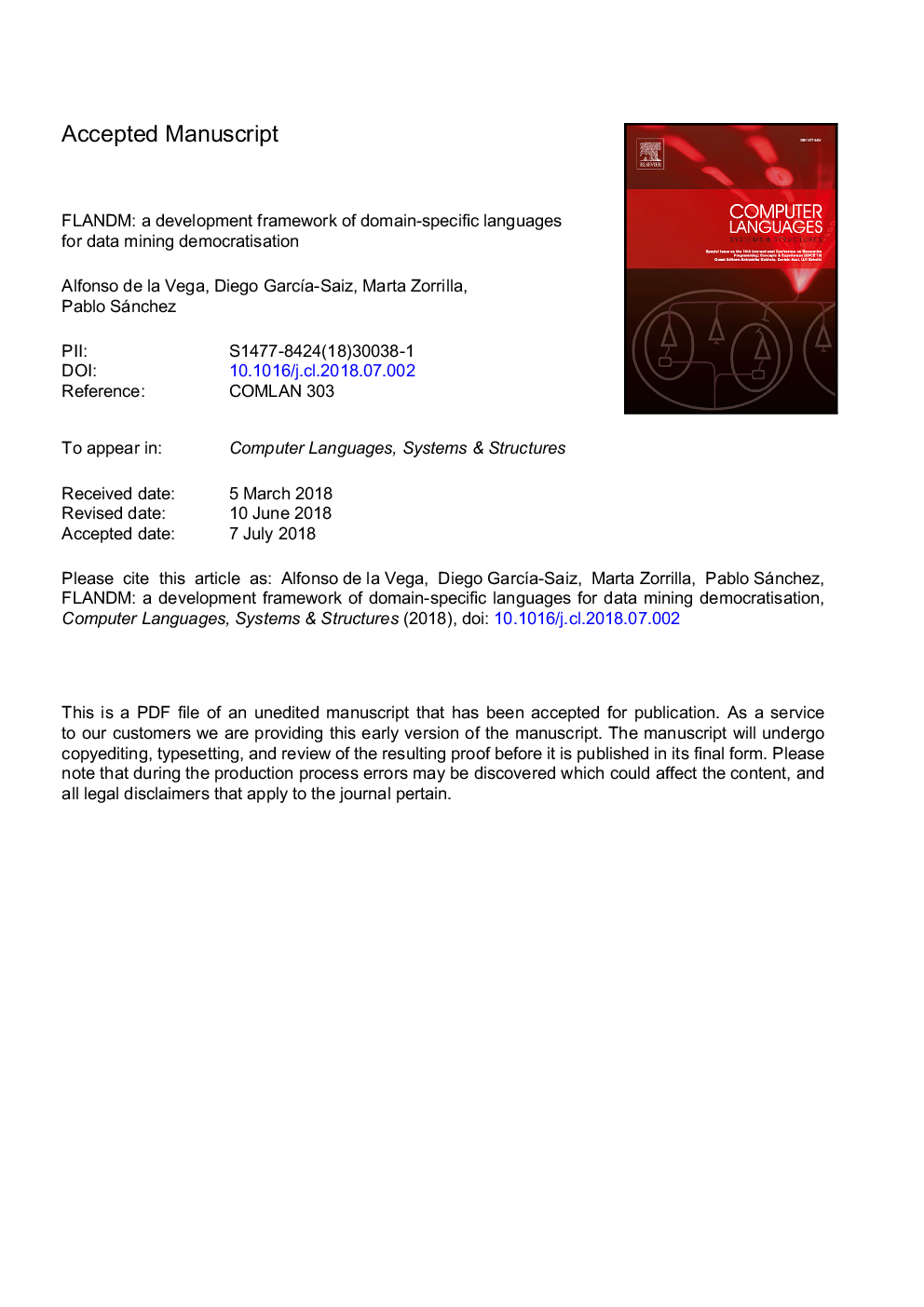| Article ID | Journal | Published Year | Pages | File Type |
|---|---|---|---|---|
| 6870906 | Computer Languages, Systems & Structures | 2018 | 58 Pages |
Abstract
Companies have an increasing interest in employing data mining to take advantage of the vast amounts of data their systems store nowadays. This interest confronts two problems: (1) business experts usually lack the skills required to apply data mining techniques, and (2) the specialists who know how to use these techniques are a scarce and valuable asset. To help democratise data mining, we proposed, in a previous work, the development of domain-specific languages (DSLs) that hide the complexity of data mining techniques. The objective of these DSLs is to allow business experts to specify analysis processes by using high-level primitives and terminology from the application domain. These specifications would then be automatically transformed into a low-level, executable form. Although these DSLs might offer a promising solution to the aforementioned problems, their development from scratch requires a considerable effort and, consequently, they are costly. In order to make these languages affordable, we present FLANDM, an ecosystem devised for the rapid development of DSLs for data mining democratisation. FLANDM provides a base infrastructure that can be easily customised for the particularities of each domain, enabling controlled and systematic reuse of previously developed artefacts. By using FLANDM, new DSLs for data mining democratisation can be defined achieving a 50% of reduction in their development costs.
Related Topics
Physical Sciences and Engineering
Computer Science
Computational Theory and Mathematics
Authors
Alfonso de la Vega, Diego GarcÃa-Saiz, Marta Zorrilla, Pablo Sánchez,
